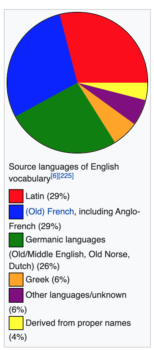What Learning Foreign Languages Teaches You About Your Own Language Posted by Erin on Aug 6, 2020 in Archived Posts
Hyperpolylgot Richard Simcott recently posed an interesting question to his Twitter followers: what have you discovered about your own language through language learning? (And yes, he speaks so many languages that even autocorrect was dumbfounded, suggesting hyperpolyglot wasn’t even a real word.)
What have you discovered about your own language through language learning? pic.twitter.com/vdsGxh8ApZ
— Richard Simcott (@SpeakinFluently) July 19, 2020
The thread is a trove of interesting reflections on how languages—and the experience of learning/using them. Pauline Itred noted how Chinese characters ‘build’ a word in a way we sometimes do in English, as in ‘telephone’ or ‘television’. Ayxan Rassulsson Mamedoff, who lists ‘Interpreter of Heiroglyphics’ on his twitter profile (seriously, we follow a lot of really cool people on twitter), mentions compound words: “I was surprised at how could I easily make those long words by adding endless suffixes to the root in my language and say it instantaneously. İstiqamətləşdirilmişlərdənsiniz? (Are you one of those who have been guided).”
I am by no means a polyglot, but I am certainly a hyper-dabbler (maybe Ayxan can help me out with a word meaning ‘one of those who knows enough of a language to express not knowing enough of a language’). Even in my Jack-of-All-Trades approach, I have found there is much to learn about English from the languages I have tried out.
Spanish is much more straightforward in pronunciation than English. Take it from Lucy and Desi:
Despite how difficult English grammar can be, I am extremely thankful I don’t have to worry about noun declensions. Right now, I only know how to talk about water and it seems that’s how it’s going to be for a while.
English uses the Latin alphabet, so it’s easier to dig into similarly alphabetted (totally a real word) languages, but less so for Eastern languages like Japanese or Urdu.
But my absolute favorite thing about English is how much we’ve borrowed from other languages. Even in something with a different alphabet, all the way across the world, can have influenced our ability to communicate what we mean to the best of our ability. Look no further than the Sanskrit word ‘guru’, the Arabic ‘lemon’, and of course the Japanese ‘karaoke’. Check out this chart of English word origins:

So even though I have about eight or nine paths open at once in my Transparent Language Online account, I’m glad that even if I’m not quite a polyglot, I can find and appreciate similarities and differences in our languages that make the world a smaller, friendlier place.
How has your language learning made you think about your Native language? Let me know in the comments!

Build vocabulary, practice pronunciation, and more with Transparent Language Online. Available anytime, anywhere, on any device.




Comments:
Kurt:
Ever since I discovered Esperanto and it’s original intent of use, I wondered why in the world English became the international language instead of Esperanto. The latter language is much easier to read and pronounce for non-native speakers compared to English, in which there are fricatives(?) like “θ” as in “thing” and “ð” as in “the”. I believe that English is too complicated for those who don’t really enjoy learning languages.
In addition, English, by far, is the most irregular language I know. What with the unstable rules of pronouncing words (like in the video above) and irregular conjugations (but that’s present in a lot of Western languages, or so I think), some people may dread even thinking about speaking English.
Kurt:
English is simply too irregular. That’s what all of my other languages taught me, including Esperanto, Mandarin, and Cantonese.